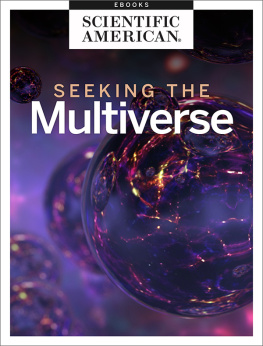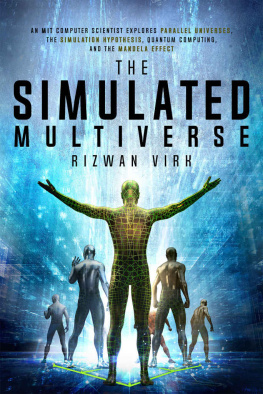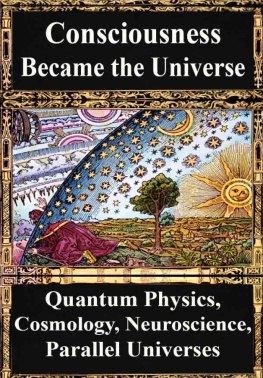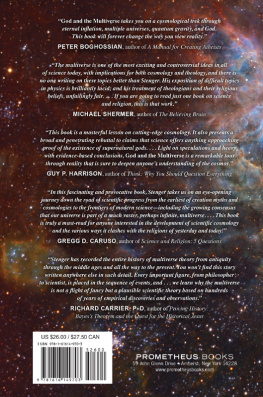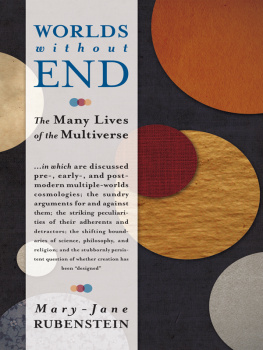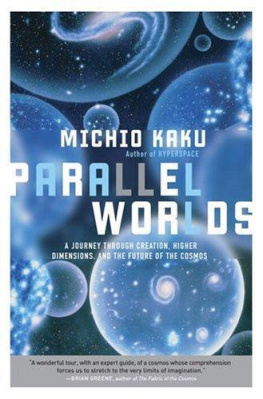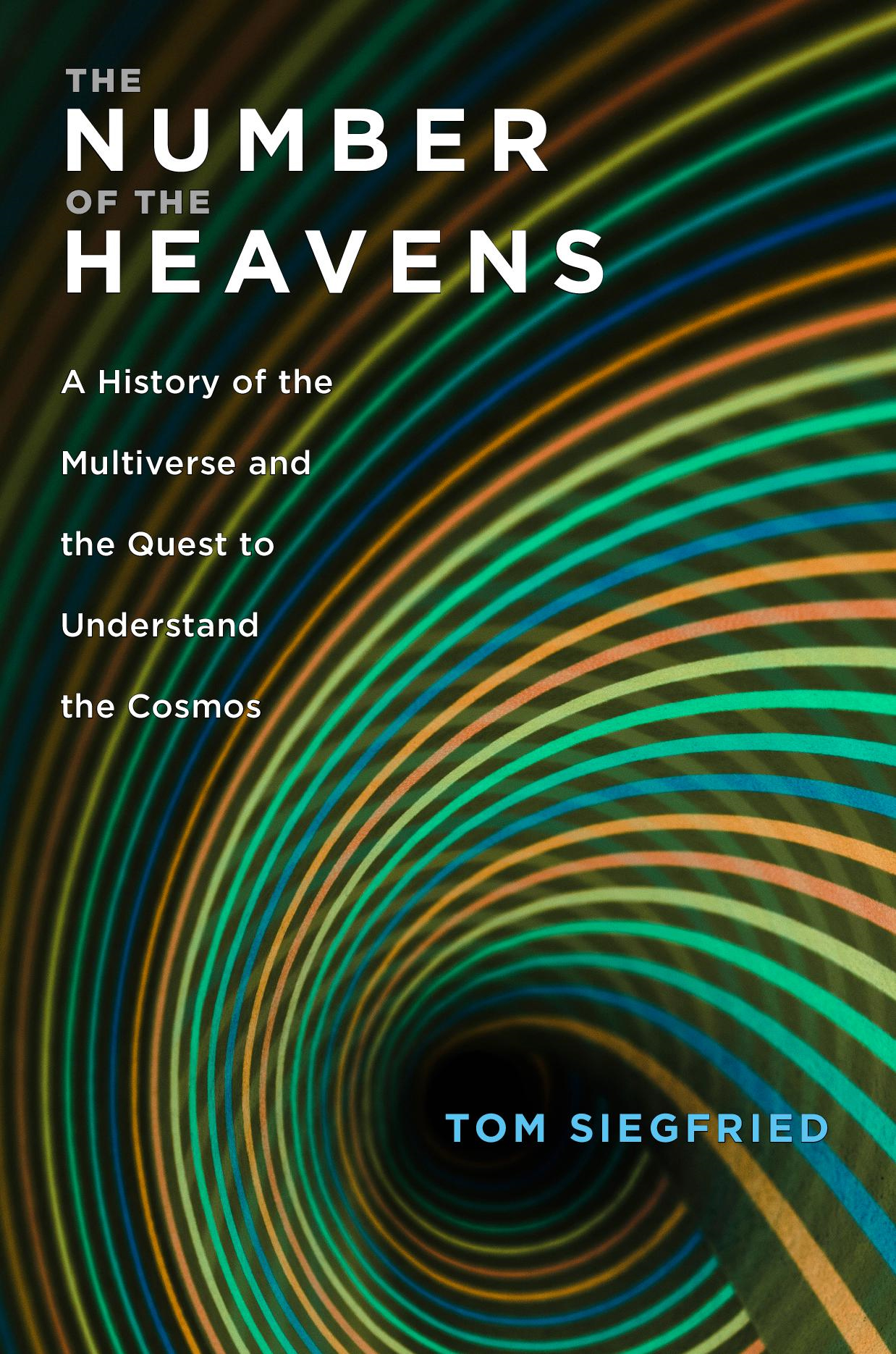ISBN: 978-0-674-97588-0 (alk. paper)
After his conquest of most of the known world, Alexander the Great wept, legend has it, because there were no more worlds to conquer. But actually, as the black-hatted villain played by Ed Harris informed us in season two of Westworld, Alexander cried when told that there was an infinity of worldsand he hadnt yet finished conquering one of them.
The popular, erroneous story of Alexanders sorrow is a misquotation of the Greek-Roman scholar and biographer Plutarch. He reported that the existence of a multiplicity of worlds was revealed to Alexander by the philosopher Anaxarchus, a follower of Democritus, the philosopher of the fifth century BC who taught that everything is made of atoms. Democritus also believed that the known cosmosbelieved in Alexanders time to be a set of spheres carrying planets and stars around the Earthwas just one of countless many. Anaxarchus contradicted Alexanders earlier teacher, Aristotle, who argued with Vulcan-like assuredness that logic prohibited the existence of multiple worlds.
In the view of most ancient and early medieval philosophers, Aristotle won the argument. But following an edict contradicting Aristotle, issued by the bishop of Paris in 1277, medieval philosophers revisited the possibility of a plurality of worlds. Scholars continued to debate that proposition over the centuries that followed. The debate never died, but its terms continually shifted as scientists revised their notion of what constitutes the world, or the universe. From the sun-centered solar system described by Copernicus, to the vast universe of stars known as the Milky Way galaxy, to the expansive and expanding Einsteinian spacetime filled by billions and billions of such galaxies, the definition of universe kept changing, requiring revision every time scientists discovered there was more than one. In the late twentieth century, the debate reignited as new data and theories about the cosmos led many experts to suspect that our universe is not alone. Today cosmological authorities argue once again about whether there is one universe or manya multiverse.
This book tells the history of this eternal debate, from the time of the ancient Greeks to the present. My interest in this issue originated during my readings of medieval scientific history, when I realized that the arguments against the multiverse today echo in many respects the arguments by medieval natural philosophers opposed to the possibility of a plurality of worlds. Those parallels, I soon learned, extended back also to the ancient Greeks. The multiverse debate is like a long-running TV series with new characters replacing the old ones but reprising common themes.
What follows is my account of the history of the multiverse debate, from antiquity to the present. I make no attempt, though, to survey the wide range of ongoing research today relevant to the multiverse issue. That would take another whole book.
The first part of my story naturally relies on the writings of the most important philosophers and scientists who have engaged with this issue as well as the analyses by modern scholars who have studied and assessed the debates of the past. Most helpful in this regard have been the writings of Pierre Duhem, Alexandre Koyr, David Lindberg, Michael Crowe, A. C. Crombie, Steven Dick, and especially Edward Grant. In the later chapters, Ive relied on my own reporting of cosmological developments over the last 35 years, as science editor of the Dallas Morning News, a contributor to Science magazine, and as managing editor and editor in chief of Science News magazine.
During these years I have benefited enormously from the cooperation of a great many scientiststoo many to name here, but most will appear in the pages that follow. I must mention one of the most helpful, though, who sadly will not see this book: Joe Polchinski, of the University of California, Santa Barbara, who died in 2018.
Also too numerous to mention are my many friends, colleagues, and relatives who have listened patiently to my undigested thoughts on this topic in recent years and posed polite questions and comments, often very insightful. I owe special thanks to my former Science News colleague Beth Rakouskas for creating the figures in chapters 2 and 13.
Thanks are also due to my editor at Harvard University Press, Jeff Dean, for his many apt observations about the manuscript and to several reviewers for their very helpful comments. Extra appreciation is extended to Steve Maran, former press officer for the American Astronomical Society, who first approached me about the prospect of writing what turned out to be this book. And it would be a serious oversight not to thank my wife Chris, who has patiently endured my preoccupation with this project over the last three years.
One final point to emphasize is that I do not contend to establish with this book whether Alexander was right to weep. The modern version of the multiverse is not established science. In the past, proponents of multiple worlds have repeatedly turned out to be right. But that doesnt necessarily mean todays multiverse proposals will turn out to be right as well. Whether a multiverse exists, nobody can say for sure. As my friend the cosmologist Rocky Kolb replied when I posed that question to him, An honest answer would be that we dont yet know enough to answer this question. Scientists are allowed to say we dont know.
Many serious scientists contend, though, that it is unscientific to even consider the possibility of a multiverse. But I believe the history of the issue strongly contradicts that view. A multiverse may exist, or not, but one message from this book is that the answer to that question will come from continued scientific investigation, not by denying that the question is scientific to begin with. The question of multiple worlds has always been scientific, as its history demonstrates.
Tom Siegfried
Springfield, Virginia
May 2019
The idea that multiple domains may exist takes the Copernican revolution to its ultimate limiteven our universe may not be the center of the Universe.
V. AGRAWAL, S. M. BARR, JOHN F. DONOGHUE, and D. SECKEL
N THE YEAR 1277, the bishop of Paris loosened Aristotles grip on the science of the universe.
With the blessing of the pope and the advice of an all-star team of theologians, Bishop tienne Tempier condemned 219 philosophical propositions, most based on the teachings of Aristotle. No longer were Parisian scholars permitted to profess that celestial bodies have eternity of motion but not eternity of substance (Article 93). Or that the immediate effective cause of all forms is an orb (Article 106).


